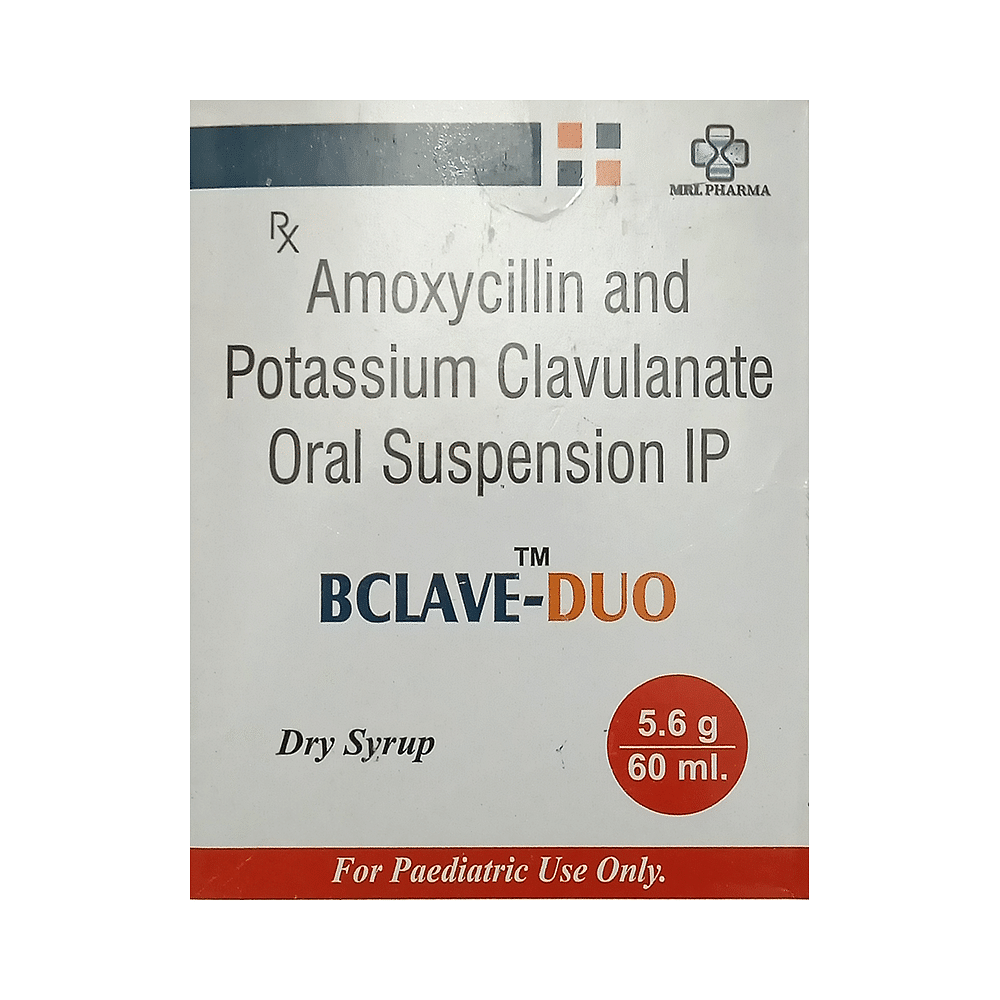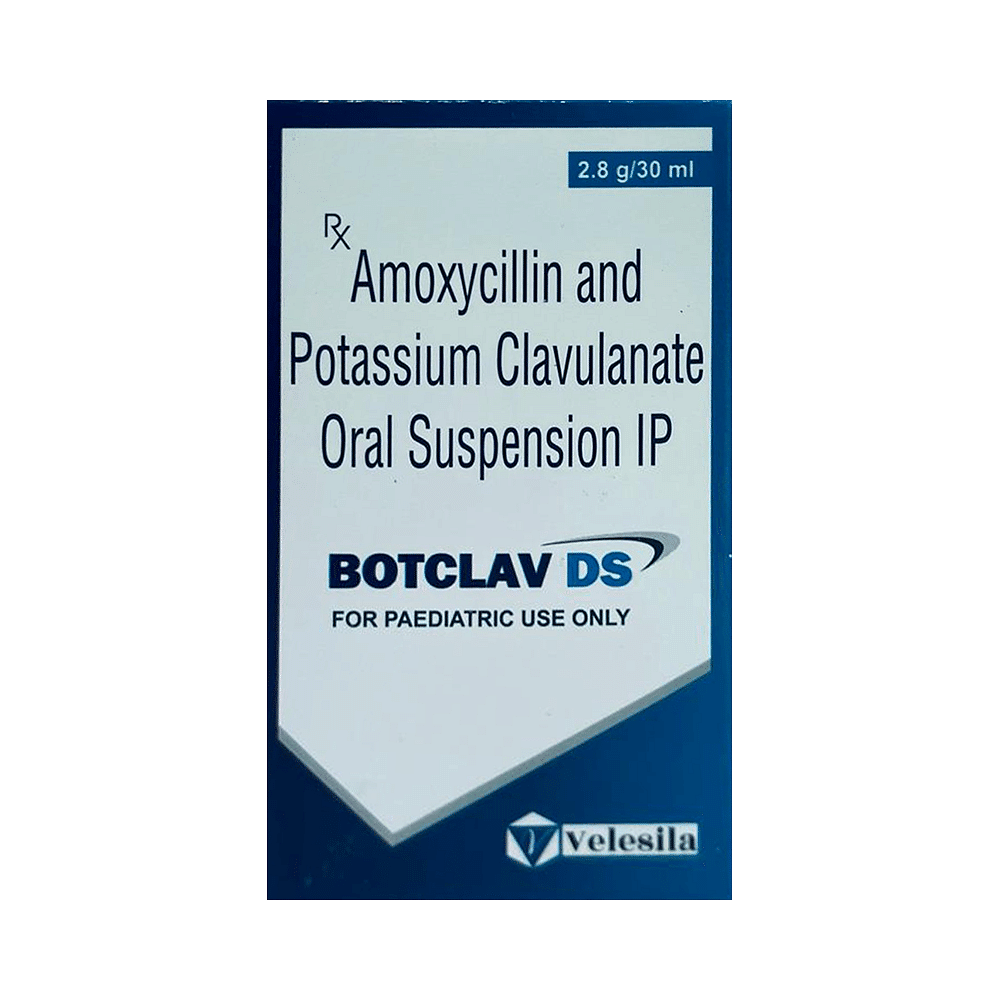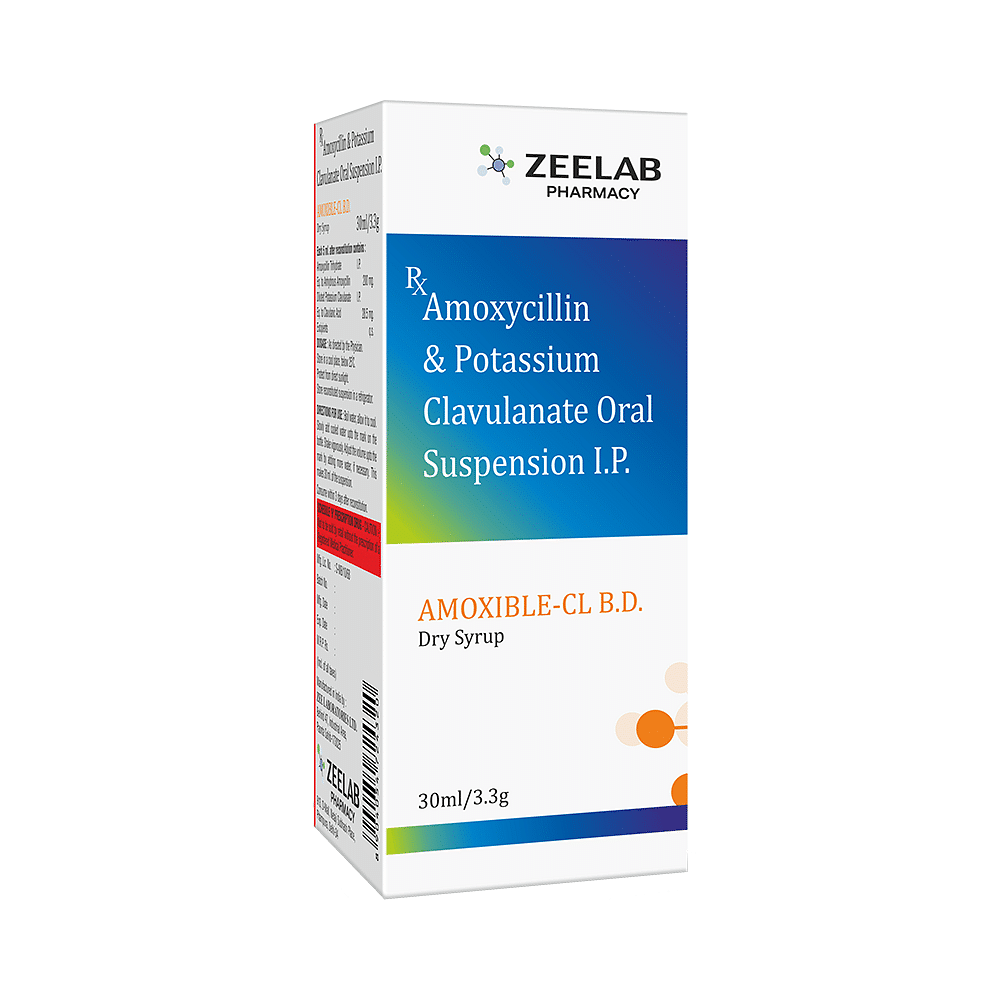
Koseclav Dry Syrup
Manufacturer
Kosmed Formulations
Salt Composition
Amoxycillin (200mg/5ml) + Clavulanic Acid (28.5mg/5ml)
Key Information
Short Description
Koseclav Dry Syrup is an antibiotic medicine that helps treat bacterial infections of the ear, nose, throat, chest, lungs, teeth, skin, and urinary tract.
Dosage Form
Oral Suspension
Introduction
Koseclav Dry Syrup is an antibiotic medicine that helps treat bacterial infections of the ear, nose, throat, chest, lungs, teeth, skin, and urinary tract. It is capable of killing bacteria that have become resistant to other therapies and thus also helps treat tuberculosis that is resistant to other treatments.
Directions for Use
Your child must complete the entire course of antibiotics. Stopping too soon may cause the bacteria to multiply again or cause another infection.
Safety Information
Side Effects
No common side effects listed.
How it works
Koseclav Dry Syrup is an antibiotic. It has two active agents amoxycillin and clavulanic acid. Amoxycillin works by preventing the formation of the bacterial protective covering (cell wall) essential for the survival of the bacteria. Whereas clavulanic acid serves a special purpose of inhibiting an enzyme (beta-lactamase) that is produced by resistant bacteria. This makes the combination of amoxycillin and clavulanic acid an effective line of treatment for many types of infections.
Quick Tips
Your child may have a bitter taste in the mouth after the intake of Koseclav Dry Syrup. Eating citrus fruit or sipping plenty of water or fruit juice may help. Encourage your child to drink plenty of water in case diarrhea develops as a side effect. Never give Koseclav Dry Syrup until and unless prescribed by the doctor. Do not give Koseclav Dry Syrup to treat common cold and flu-like symptoms caused by viruses. Never save medicine for future illnesses. It cannot be said whether the same medicine will work on future infections. Check ‘expiry’ before giving Koseclav Dry Syrup to your child. Immediately discard all the expired medicines. Stop Koseclav Dry Syrup immediately if your child develops an itchy rash facial swelling or breathing difficulty. Report to the doctor without any delay.
Related Medicines

Ibimox BD Oral Suspension

Amroxil CV Oral Suspension

Alox-CV Dry Syrup

Moxprans-DS Dry Syrup

Bclave-Duo Dry Syrup

Clavbel Oral Suspension

Botclav DS Oral Suspension

Amoxible-CL B.D. Dry Syrup

Reclav -DS Dry Syrup

Zitomox-CV Dry Syrup
Frequently asked questions
Can other medicines be given at the same time as Koseclav Dry Syrup?
It is important to consult with your child's healthcare provider about potential interactions between Koseclav Dry Syrup and any other medications or substances they may be taking. This includes over-the-counter medications, herbal supplements, and food additives.
Can I get my child vaccinated while on treatment with Koseclav Dry Syrup?
Generally, antibiotics do not interfere with the ingredients in vaccines or cause a significant reaction in children who have recently been vaccinated. However, it is crucial to speak with your child's healthcare provider before administering any medication until they are fully recovered from their illness. Once your child feels better, the vaccine can be administered.
Which lab tests may my child undergo while taking Koseclav Dry Syrup on a long-term basis?
Periodic kidney and liver function tests may be recommended for children who are on prolonged antibiotic therapy. This helps ensure the medication's safe and effective use, and it allows for adjustments if needed.
Can I give a higher than the recommended dose of Koseclav Dry Syrup to my child?
Do not exceed the recommended dosage of this medicine. Increasing the dose can lead to unwanted side effects. If your child experiences any worsening symptoms, please contact their healthcare provider for re-evaluation.
Can I stop giving Koseclav Dry Syrup to my child when the symptoms are relieved?
No, do not discontinue the medication before completing the prescribed course. The symptoms may improve before the infection is fully cleared. Continued use of Koseclav Dry Syrup for the full duration ensures optimal benefits.
Can the use of Koseclav Dry Syrup cause diarrhea?
Yes, some children taking Koseclav Dry Syrup may experience diarrhea as a side effect. It's because the medication can disrupt the balance of bacteria in their digestive tract. Encourage your child to drink plenty of fluids, and seek medical advice if they have persistent or worsening diarrhea.
Do all viral common colds result in secondary bacterial infection?
Most viral cold infections are not followed by a subsequent bacterial infection. However, it's important to note that bacterial infections can rarely occur in patients with weakened immune systems or if they haven't completely recovered from their initial illness.
The mucus coming out of my child’s nose is yellow-green. Is it a sign of a bacterial infection?
Yellow or green mucus in the nose doesn't necessarily indicate a bacterial infection, and often occurs during a typical cold as the body works to clear viruses. However, if you observe other symptoms like fever, lethargy, difficulty breathing, or severe pain, it is best to seek medical advice immediately.
Is there any sign which shows that my child needs immediate medical attention?
Call your child's healthcare provider right away if they experience any of the following: difficulty breathing, sudden rash or swelling, severe vomiting, persistent diarrhea with blood, liver problems (pale skin, weakness, etc.), or a known allergic reaction. These symptoms may indicate more serious conditions that require immediate attention.


